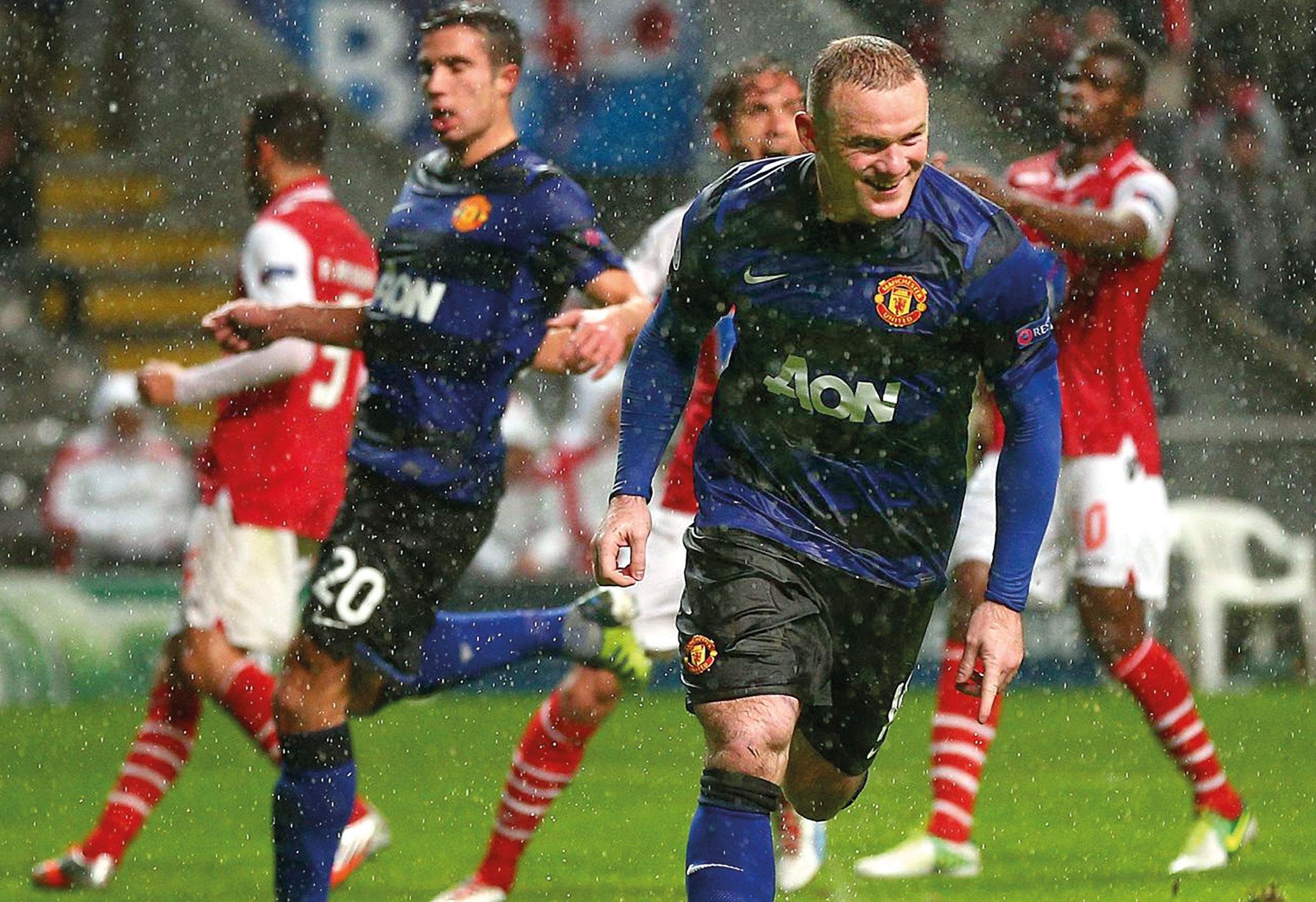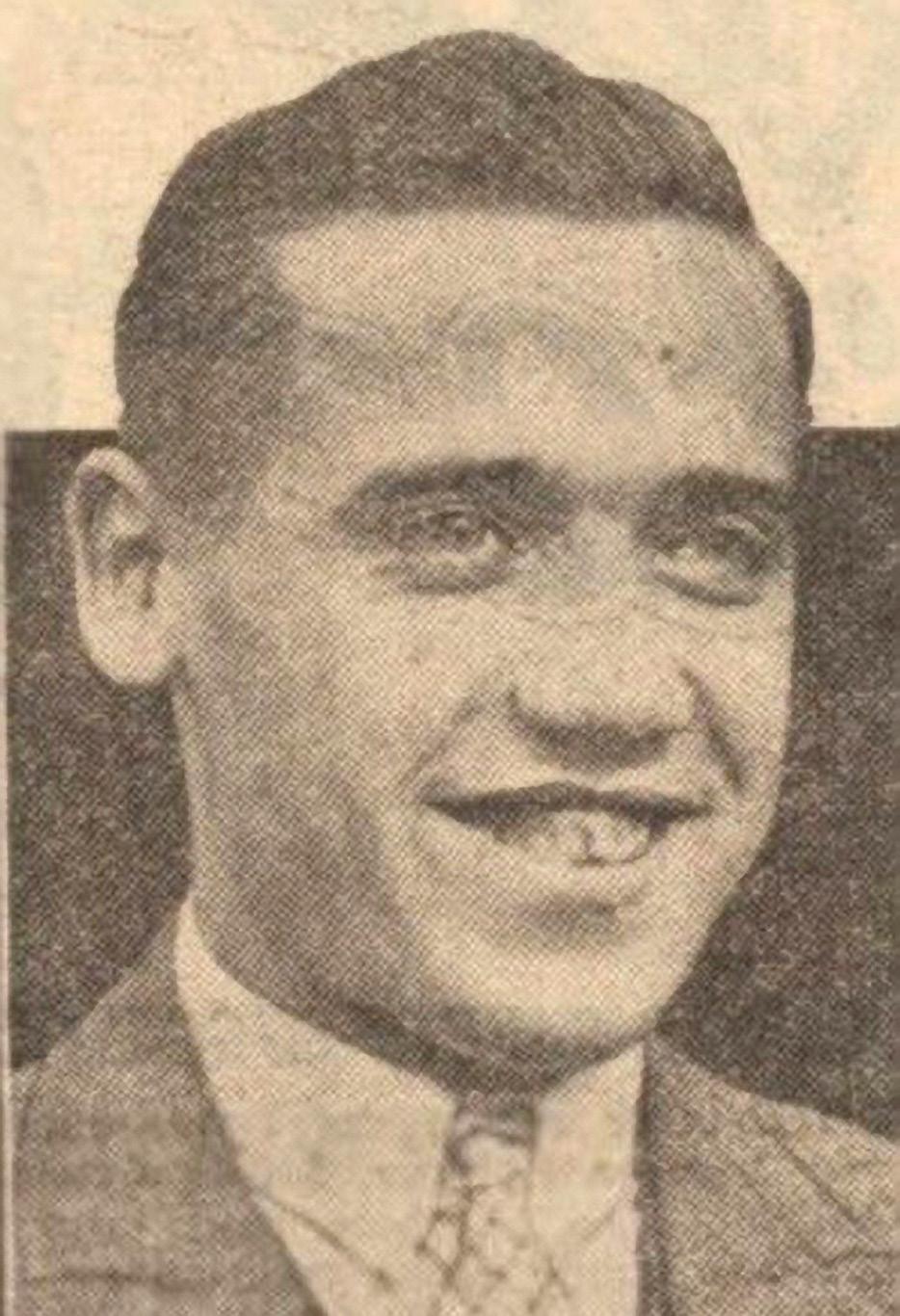
9 minute read
RALF RANGNICK - HAS HE IMPROVED UNITED?



by Stefan Attard
Before tackling the above, I want to talk about the season so far. I’ll keep it short and sweet, though it’s been a whirlwind. The club were active in the transfer window last season bringing in the likes of Jadon Sancho, Raphael Varane and Cristiano Ronaldo. Many United fans believed that this was supposed to propel United into a title race. By November though, manager Ole Gunnar Solskjaer was sacked; Man United were 12 points adrift of the league leaders and already out of the League Cup.
Following the dismissal of Ole on the 21st of November 2021 after a poor run of results, Ralf Rangnick was shortlisted as a potential short-term manager by Manchester United. The board had initially decided to appoint Michael Carrick as caretaker manager while scouting replacements. Rangnick quickly emerged as the outstanding candidate during interviews and was appointed as interim manager on the 29th November until the end of the season. The German was brought from his previous position as sporting director of the Russian side Lokomotiv Moscow to lead the side through the rest of the season. Following this period he will continue in a consultancy role for a further two years. Following the approval of the work permit, Rangnick took charge of the team on the 2nd of December. His first match saw the club defeat Crystal Palace 1–0.
The common consensus was Rangnick would steer United through the current campaign before moving upstairs into a consultancy role for the final two years of his deal. Fast forward three months and following United’s elimination from the Champions League, reports emerged that Rangnick could be relieved of his duties before the season is out. We are only in midMarch but already it is clear that Manchester United have very little to play for in the rest of this campaign. They face an uphill struggle to qualify for next season’s Champions League with Arsenal in control of fourth spot. The Gunners’ recent narrow win over Aston Villa has made that task even more difficult, with a four-point gap and a game in hand over United. But such a margin is not impossible to reduce. Arsenal still have to play Chelsea and United in their final matches of the season, and that at least gives United some encouragement in being able to decide their own destiny.
Ralf Rangnick initially disassembled Ole’s 4-23-1 formation, in favour of a Red Bull inspired 4-2-2-2. The only problem is that Manchester United clearly did not have much in the way of wings in the formation, and the verticality made Rangnick’s team incredibly easy to defend against. In some ways, it allowed the likes of Fred and Scott McTominay to explode into form, proving themselves as sound ball winners capable of holding a central midfield unit all on their own. In other ways, it exposed Fred and McTominay’s lack of ability to adequately defend transitions, a problem magnified by Harry Maguire’s incessant desire to step out of line and Luke Shaw’s poor positioning down the left. With the Red Devils only scoring 6 goals from 5 matches in the 4-2-2-2, Rangnick immediately switched to a 4-2-3-1, which has reinvigorated Jadon Sancho.
Other than the legendary David De Gea, Jadon Sancho has arguably been the key man under Rangnick, as Bruno Fernandes and Cristiano Ronaldo continue to battle for the same spaces and continue to perform better when the other is missing. The British wing wizard has finally showed the promise that he brought with him when he arrived from Borussia Dortmund for a hefty €85 million. On the right wing, Rangnick’s had less consistency, but has handed an opportunity to Anthony Elanga, who has performed promisingly in his first few matches as a mobile, direct, pacey winger. Despite being the most experienced winger, Marcus Rashford’s season has been nothing but abysmal.
Bruno Fernandes and Cristiano Ronaldo are the other undeniable starters in the attacking line, with both wanting to be the central figure at the club. Ronaldo has had a decent start to life back at United with him being integral to the team’s ability to claim crucial victories.
In behind the front quartet, Scott McTominay and Fred have continued to hold down a place and perform well and the two men have performed admirably and consistently under Rangnick’s robust style of play. While Paul Pogba offers a massive edge in possession and could hit a target on the moon, United always look best with the two defensively solid midfielders in their line‑up.
Diogo Dalot also excelled under the influence of Rangnick to steal a place away from the out of form Aaron Wan-Bissaka. Alongside Dalot, Alex Telles has also been given time to shine this season at left-back, with mixed success. Luke Shaw remains the irrefutable best option, but has been substandard at best this season, a far cry from his incredible form of 2020-21. With Harry Maguire struggling, the inconsistency at left-back has hurt United even more. Alongside Maguire, Victor Lindelof adds an expressive edge to the Red Devils in possession and increases their threat dramatically. With his undeniable ability to both carry and pass the ball out from the back, it’s a mystery why the Swede doesn’t start every game. Raphael Varane is another experienced option, and one that has claimed several European trophies during his prosperous career. However, the inconsistencies in form and apt leadership at the back have allowed David De Gea to go on and have just about the best season of his career. There’s a real argument that David De Gea has been United’s Player of the Season so far, but that is a genuine worry for Ralf Rangnick, and one that needs to be addressed before the end of 2021-22, especially if the Red Devils are to finish in the top four.
So those are the players inside Rangnick’s 4-2-3-1 formation. But now let’s dissect how exactly Rangnick’s team set up both in and out of possession, and why they’ve struggled to truly break back into the top four.
ATTACKING PRINCIPLES For all of Ole Gunnar Solskjaer’s failures at United, the Norwegian had his team playing with a succinct style of football in the attacking sense of the game. The Red Devils had some of their best performances under a quick counter attacking regime, bolstered by rampant carriers like Marcus Rashford and Luke Shaw, and the extraordinary creativity in the final third from the likes of Paul Pogba and Bruno Fernandes. The arrival of Cristiano Ronaldo changed all of that, and for a while, United suffered under a newfound uncertainty in identity. Ralf Rangnick’s quest has been to restore, renew or instate a new identity at the club, and that hasn’t quite happened from an attacking perspective.
Anthony Elanga and Jadon Sancho have made themselves a bundle of energy in the wide areas, and the change in shape back to 4-2-3-1 has been a welcomed one. This, more than anything, has perhaps allowed United to develop some form of consistency without needing to rely solely on the skill of Bruno Fernandes or the finishing power of Cristiano Ronaldo.
As the wide men drive the ball inside, the fullbacks overlap. Dalot’s ability to time his runs forward has been a positive chip for Rangnick.
Despite Dalot’s improved quality, United have continued to attack down the left with the likes of Shaw and Sancho, where Bruno Fernandes and Cristiano Ronaldo also love to roam. Victor Lindelof’s quality in hitting long passes over the top can then allow runners like Ronaldo or Bruno to run in behind in right half-spaces, or can be hit diagonally across for someone like Sancho as he holds the width of the field. Scott McTominay has also improved his long-passing range this season and will frequently look for these types of switches to the left himself.
While the long-passing specialties of some players has been a positive, their risk-taking behaviour in this regard has also been a negative. Paul Pogba and Bruno Fernandes dazzle on the ball and certainly can produce magic; however, sometimes they are too quick to release the ball forward in the quest to pull off the extravagant. United have never truly found a balance between the boring and stale passes between their centre-backs that do much of nothing, and the overly adventurous ones that players further up the pitch tend to overhit.
With that kind of individuality and poor decision making in mind, it’s no wonder why United’s players often appear to be on different wavelengths. They have a countless number of players capable of producing magic. Ronaldo, as he showed against Spurs, still has devilish shooting boots. Jadon Sancho can dance around anyone. Bruno Fernandes and Paul Pogba can both pick passes out from anywhere. Even someone mighty like Fred can randomly pop up with the ‘wait…what did he just do??’ kind of sorcery. But too much of that isn’t necessarily a good thing, and it’s one of the main reasons why United have failed to find a true sense of attacking identity since Rangnick took over. Every single one of United’s players are trying to be the saviour, when they achieved so much more with only one or two heroic figures under Solskjaer.
DEFENDING PRINCIPLES Much of Rangnick’s legacy as a sporting director centres around the tireless work his teams do off the ball, predominantly in the defensive side of the game. While the clean sheets and overall defensive intensity have increased, United’s defensive problems persist.
Part of that might be the inconsistency in defensive structure, with Rangnick remaining fairly adaptive to both the opposition and the needs of his team. The Red Devils have rotated tactics out of possession throughout the past few months, which sees further variations lower down on the pitch, such as 4-4-1-1. In the middle third, where United spend the majority of time defending, Rangnick’s team shape up into a 4‑1‑4‑1, which positions one central midfielder in front of the other. If the holding midfielder is asked to track the opposition’s number six, it can even shape into more of a 4-5-1, as the defensive-mid steps up alongside the others. As the ball is progressed further down the field, all three midfielders may race back to defend, with a more stable double pivot in-tact and ready to handle passes into the penalty area.
CONCLUSION Ralf Rangnick’s temporary tenure at Manchester United has been a roller coaster of a ride, with no end in sight for their persistent problems. Rumours continue to roam the footballing landscape, with Erik Ten Hag and Mauricio Pochettino linked with the job. But regardless of who is to be United’s next manager, a multitude of problems need sorting out before the end of the season, and the players they currently have at their disposal need to pull their act together and pull it off. Rangnick’s achieved some level of consistency in a 4-2-3-1 formation that has brought positive moments from all his players in various moments, but they continue to ship goals for fun. Through those defensive failures, they’ve struggled to find a clear attacking identity, failing to adequately walk the line between patience and progressiveness. Ralf Rangnick hasn’t done the worst job in the world at Manchester United, but the inevitability of his end-of-season departure makes watching United and their tactics all the more unpalatable.











